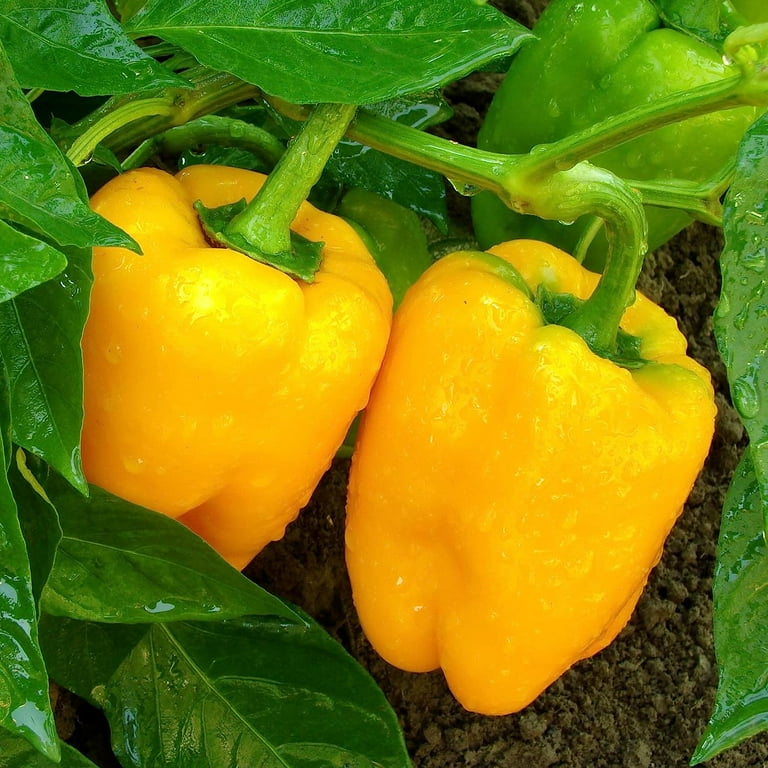Best Fertilizers for Peppers: Accomplish Superior Results in Your Yard
Best Fertilizers for Peppers: Accomplish Superior Results in Your Yard
Blog Article
Organic Vs. Synthetic Fertilizers: Which Is Best for Nurturing Healthy Pepper Plants?
In the realm of supporting healthy pepper plants, the selection in between organic and artificial fertilizers stands as a critical choice with far-ranging ramifications. While both options goal to give crucial nutrients to support plant development, the nuances of their effect on the soil, plant health and wellness, and the environment spark a discussion that echoes throughout the gardening area. Recognizing the unique benefits and prospective risks of each plant food type is critical for pepper cultivators looking for to optimize their yields while keeping a lasting and eco-conscious technique.
Advantages of Organic Plant Foods
Organic fertilizers offer an environmentally-friendly and sustainable approach to beneficial pepper plants, providing necessary nutrients without making use of synthetic chemicals. These natural plant foods are originated from natural sources such as compost, manure, bone dish, and seaweed, advertising dirt health and biodiversity. Unlike artificial plant foods, organic options launch nutrients slowly, guaranteeing a well balanced and stable supply for pepper plants to grow.
One significant benefit of organic fertilizers is their ability to boost soil structure and water retention. By enhancing soil health and wellness, natural fertilizers advertise useful microbial task, which helps in nutrient uptake by pepper plants. Furthermore, natural fertilizers lower the threat of chemical run-off, protecting water sources from pollution and securing the setting.
Additionally, organic fertilizers add to lasting dirt fertility by promoting the growth of useful dirt organisms. These microorganisms aid break down organic issue, releasing nutrients in a kind that is conveniently obtainable to pepper plants. best fertilizers for peppers. By cultivating a healthy and balanced dirt ecological community, natural fertilizers sustain sustainable pepper cultivation techniques that profit both plants and the environment
Downsides of Artificial Fertilizers
Artificial fertilizers, in contrast to their natural counterparts, pose numerous downsides when utilized to nourish pepper plants, influencing both plant health and ecological sustainability. One significant drawback of artificial fertilizers is their propensity to seep nutrients from the dirt quickly.
Moreover, the overuse of artificial plant foods can contribute to water air pollution. Excess plant foods not soaked up by plants can wash away right into water bodies, leading to eutrophication, where algae flowers deplete oxygen levels in the water, hurting water life. Furthermore, artificial plant foods are normally stemmed from non-renewable resources, such as nonrenewable fuel sources, adding to carbon discharges and ecological degradation throughout their manufacturing.
Nutrient Absorption Contrast
When contrasting synthetic and organic plant foods in terms of nutrient absorption, natural fertilizers have the benefit of offering a more well balanced and slow-release source of nutrients. Organic plant foods contain a selection of macro and micronutrients that are not only advantageous for the plants but additionally advertise healthy dirt microbial activity, which assists in nutrient uptake.
Furthermore, organic fertilizers enhance dirt structure and water retention capability, allowing pepper plants to access nutrients a lot more effectively. This improved soil top quality helps with root development, making it possible for much better nutrient absorption. Synthetic fertilizers, although originally enhancing plant development because of their high nutrient focus, may hinder long-term nutrient absorption by degrading dirt health and wellness in time.
Ecological Influence Factors To Consider

On the various other hand, synthetic fertilizers, although often even more immediately readily available and focused to plants, can have detrimental results on the environment if not used correctly (best fertilizers for peppers). Their production needs high energy inputs, leading to greenhouse gas exhausts and adding to climate change. The runoff of excess artificial fertilizers can infect water sources, leading to eutrophication and harming aquatic environments.
Best Plant Food Practices for Peppers
When feeding pepper plants, enhancing nutrient special info uptake and lessening environmental influence are vital considerations. To attain this, it is important to comply with ideal plant food methods tailored to the details demands of pepper plants. One vital method is to carry out a soil test before applying any kind of plant foods. This examination can establish the pH degree of the soil and identify any nutrient deficiencies, guiding you in choosing one of the most suitable plant food formulation.
An additional important technique is to fertilize pepper plants at the correct time. Normally, peppers take advantage of getting fertilizer at growing and after that again when they begin to flower. Over-fertilizing can bring about nutrition imbalances and hurt the plants, so it is important to adhere to advised application rates.
In addition, selecting a well balanced fertilizer with an NPK ratio that suits pepper plants' requirements is essential. Organic plant foods, such as garden compost or manure, can be superb choices as they launch nutrients gradually and enhance dirt structure gradually. Nonetheless, synthetic plant foods can provide a fast nutrient increase when needed. Ultimately, combining artificial and natural plant foods judiciously can aid support healthy pepper plants while reducing ecological impact.
Verdict

Organic fertilizers use a sustainable and environmentally-friendly method to nourishing pepper plants, offering vital nutrients without the use of synthetic chemicals. Unlike artificial fertilizers, organic options release nutrients slowly, ensuring a well balanced and constant supply for pepper plants to grow.
Synthetic plant foods, in comparison to their organic equivalents, present various downsides when utilized to nurture pepper plants, impacting both browse around here plant health and ecological sustainability. When contrasting organic and synthetic fertilizers in terms of nutrient absorption, natural plant foods have the advantage of providing an extra balanced and slow-release source of nutrients.Furthermore, organic plant foods enhance dirt framework and water retention ability, enabling pepper plants to accessibility nutrients a lot more effectively.
Report this page